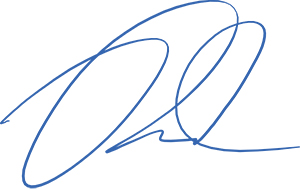


I happened to be in my hometown of Las Vegas the day the state’s governor closed all non-essential businesses, including casinos, in response to COVID-19. Within one hour of his order, I received a call instructing me to check out of my hotel the following morning. Las Vegas was closing, and I was essentially being commanded to leave the state. Having been born and raised in the City of Lights, I could never have imagined that it would close; the unimaginable had happened.
The weeks that followed compounded the disorienting nature of that experience. Numerous emergency proclamations and closures continued to disrupt the world. Each day felt more surreal. As a business owner, I quickly discovered that planning was nearly impossible, as the situation was too fluid. Therefore, I realized, the most important skill I could engage in the midst of this uncertainty was adapting with urgency and resiliency. It also became clear that my most important resource would be my relationships, the trust I had built with my team, and their trust in each other.
The COVID-19 pandemic will pass, and the accompanying human tragedy and economic wreckage will mend with time. Like the pandemic of 1918, historians will record the events with the hope of informing future generations of the risks and the lessons learned.
What have we learned so far? First, we have been reminded that nature is not partisan, intentionally cruel or vindictive. It does not have any economic concerns or bias; it is simply indifferent. Second, recent events prove that given the choice between life and economic catastrophe, all but a few outliers will choose life. With these two lessons fresh in our experience, will we change our approach toward other slow-moving but unimaginable crises that loom visible on the horizon?
Our ability to imagine the future is deeply anchored in our life experience, which is why COVID-19 caught so many off guard. Most never study pandemics and, fortunately, none have had the experience. As a result, we could not imagine the future implications of a viral outbreak half a world away. But there are those who did: the scientists and other professionals who study such things. They imagined it. They understood its meaning and sounded the alarm, but we were slow to respond because we could not envision the consequences we are now living.
Today, the preponderance of the global scientific community agrees on the profound threat to humanity posed by climate change and environmental degradation. These experts have been sounding the alarm for decades. But like the current pandemic, their early warnings have been ignored because we do not yet have the experience to imagine such things.
The silver lining of a crisis is the lessons it carries. As we are currently experiencing, the unimaginable does occur. And when it does, we know we will choose life at any cost. What remains to be seen, when the pandemic dust clears, is whether we have learned to listen.

